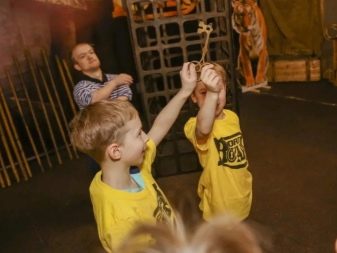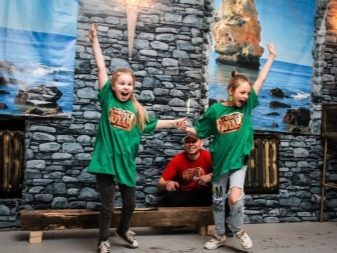All about quests
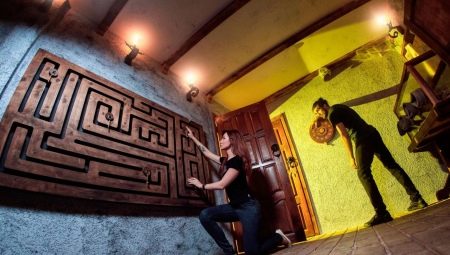
Quests have become a popular pastime among a wide variety of age groups. They are interactive games with a must-play storyline. If once the word "quest" meant only a computer game, and then an hour in a closed room with the task of getting out of it, today a quest is something much more.

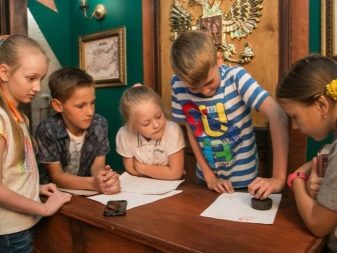
What it is?
In simple terms, a quest is a game with overcoming several stages (tasks), logically and meaningfully connected, in order to get to the prize final.

At the end of the quest there is always a prize: either the general one, or the same general one, but with the ability to divide it into parts.
Also, a prize can be a certificate, money, some points for passing to the next round, etc.

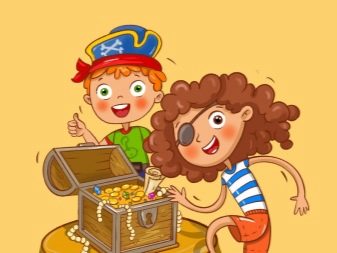
Initially, it was decided not to play quests at home. Special companies offered a ready-made quest: the participants assembled a team, paid for the service and found themselves in the organizers' script. It could be the same room from which one had to get out by solving logical problems, searching for meanings and clues. Or it was a search game, the goal of which was to find a designated item, and the field for the game could be an entire city.

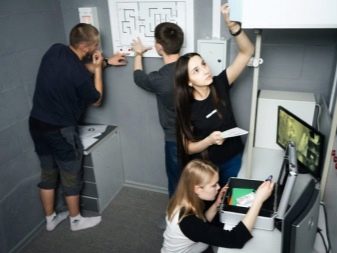
At one time, a particularly popular version of the quest was "Insomnia", that is, a search game that was only possible at night.
Over time, the quest became so popularized that people themselves began to create tasks, write scripts, look for a place and props, not relying only on the official representatives of this service. Quests came to schools, to professional teams (to raise the corporate spirit), finally, they began to appear at home, at various holidays, etc.This means that the quest went "to the people".
In fact, reality quests (that is, search games not tied to the virtual world) appeared only in the early 2000s. This entertainment is only a couple of decades old, so now it is definitely at its peak. To compose a quest, you do not need special education or training, you just need to understand the principle of the quest, the peculiarities of writing a script and decide on the topic. It happened more than once that people organized a search game for their friends, and later realized that a hobby had become something more, and left their previous job to work in the quest industry.
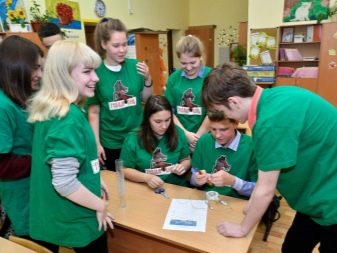
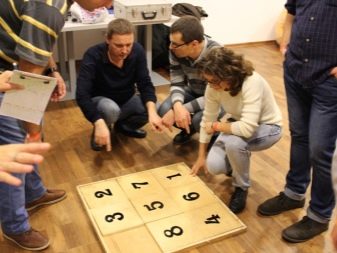
Species overview
Any classification can be considered conditional, because there are a lot of types of quests. And they appear all the time.
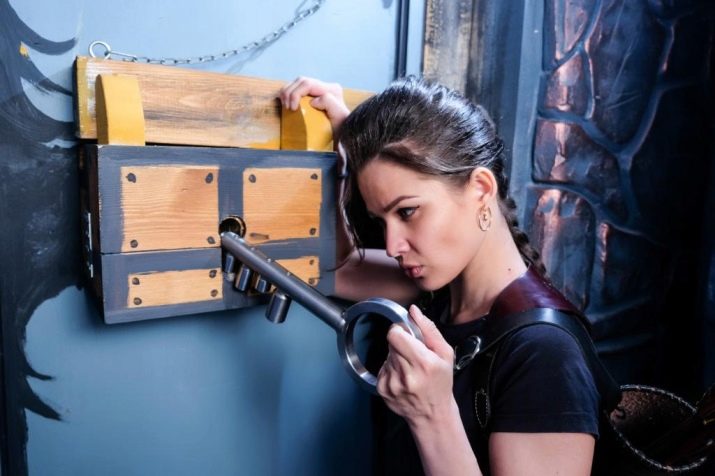
Classic
This is the story of finding a way out of a closed room. Traditionally, the team is given an hour for this.
There can be as many players as you like in a team: the organizers set the restrictions.
But the search for objects also belongs to the classics.
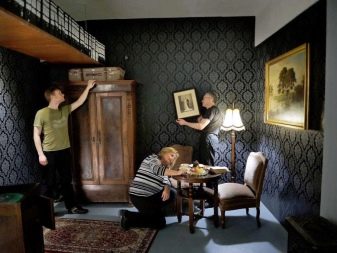
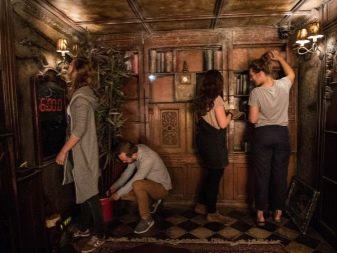
It is very important where the quest takes place. You can look for the coveted key at home, and this is also interesting: there are many places in the apartment where you can hide codes, notes, passwords and, finally, the object itself.

More professional games are held in museums, for example, where the task may be to find an inscription on some of the exhibits, etc.

In the classic quest, the conditions are very clear, it is aimed at finding a solution and this is a purely intellectual game. That is, physical activity is possible, but not so competitive that any special preparation is needed.
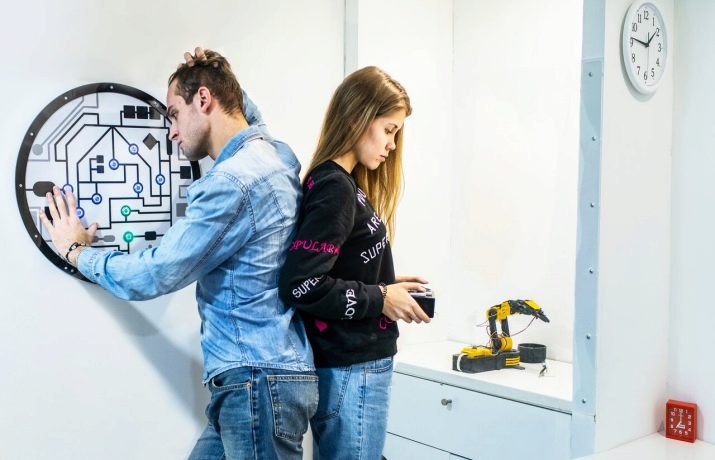
Performance
Quest performance is a more complicated solution. The beginning will be standard: the team listens to instructions and a legend from the presenter and / or organizer. She clearly understands what they have to find, what time to meet, and what search tools they have. But at a certain stage in the script, elements of theatricalization begin. Some moments pass with the help of actors: they can act as assignments themselves or sound them creatively, play around with them.
Theatricalization, by the way, can start from the threshold.

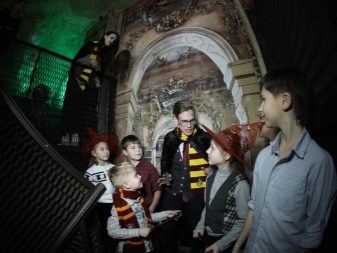
In some quests-performances, the participants themselves become part of the theatricalization: they not only look at the actors, listen to them, look for the meaning of their appearance, but they themselves act to advance in the game.
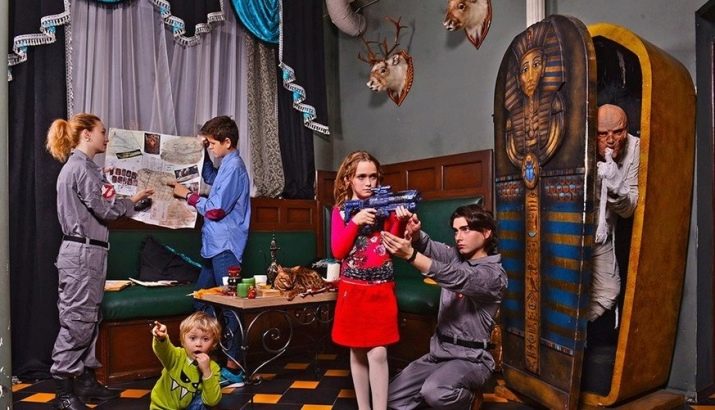
It is more difficult to arrange such a program at home, but it is quite possible.
Children are very fond of quests-performances.
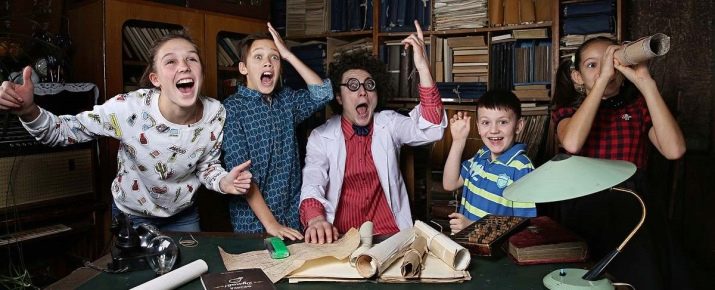
Sports
Here, too, everything is simple: as the main tasks used are those related to the demonstration of their physical skills. We'll have to run, jump, show dexterity, strength, endurance. Of course, it is more interesting to play sports quests against the opposing team.
And if it is impossible to do this at the same time, you can follow the sequence.
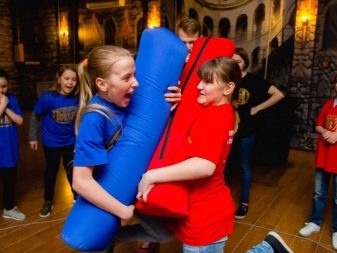
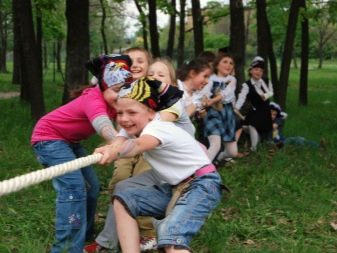
This is great among teams representing the same organization. For example, three departments of the company go out of town on a sports quest. And each department represents its own team. The team's task is to complete a sports quest in 40 minutes, and each does this, and then the results are compared. It is possible that the teams will compete for speed.
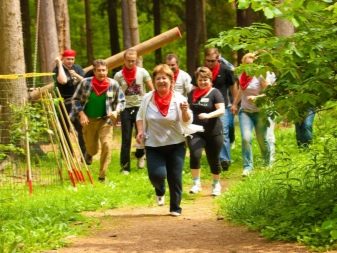
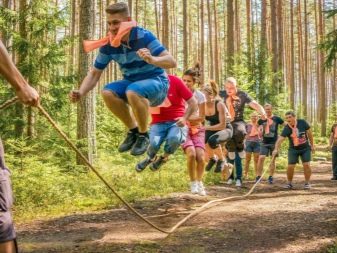
Virtual reality
VR quests are search games in the context of virtual reality. Participants put on special glasses and go through all the stages without returning to reality. Of course, it is almost impossible to carry out such a program at home, and therefore there was a request to combine a virtual scenario that is played offline. These quests are not yet actively developed, because you have to spend a lot of energy on visualizing virtual tasks, but, most likely, interest in them will grow.
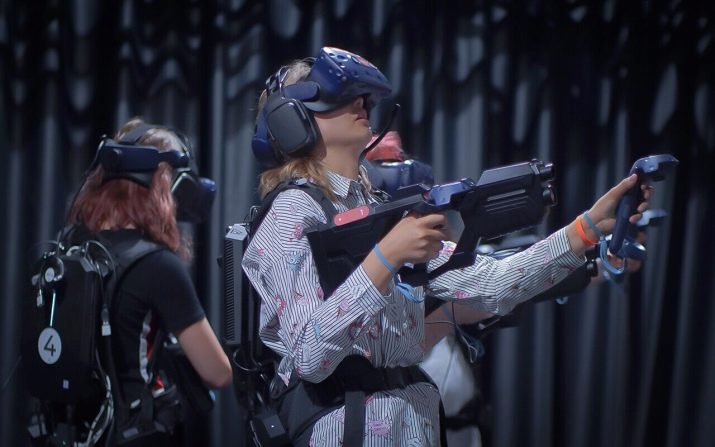
What can be the tasks?
This is the whole point of the quest. The more interesting, the more unexpected the tasks, contests, stages, tests for the participants, the cooler and more exciting the search game will be.
Let's consider the most common types of tasks.
- Riddles. Contrary to stereotypes, they are suitable not only for the smallest.Of course, children respond well to riddles, at the age of 5-6 they are especially fond of them, and the organizers should take this into account, but adults should not be deprived of such pleasure. It can be old riddles, riddles of Leonardo Da Vinci, etc., that is, it is definitely not worth leaving this type of task out of work. It usually appears in the first part of the program.
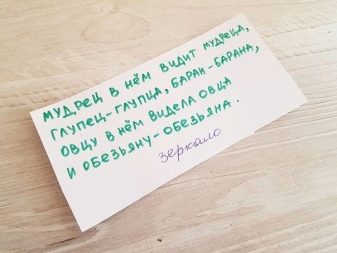
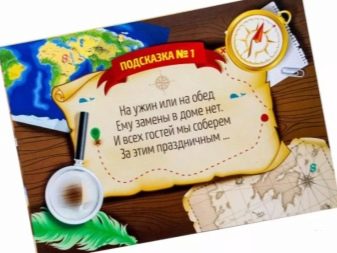
- Puzzles. By themselves, they are divided into a huge number of species. In any case, this is a kind of task in which you need not only to find the answer, but also the logic of finding it. It can be a graphic task, a picture, a mix of geometric shapes, numbers and letters, etc. It can be an image with completely incomprehensible content, but which needs to be understood and made correct. There are puzzles in almost every scenario.
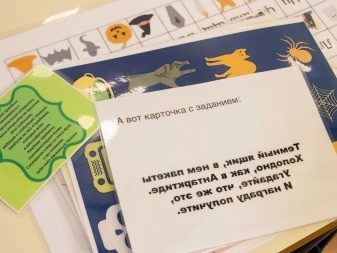
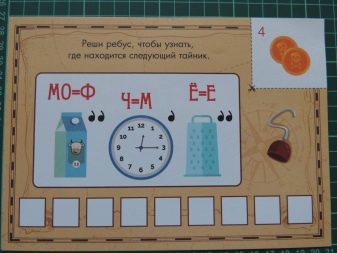
- Encryption. It's hard to describe how much primary school students love them. You can create encryption yourself using any verified principle. The simplest example is a note that contains only numbers but needs to be read. The numbers will correspond to the letters (in the order of the letters in the alphabet) or, to complicate the task, they can be made corresponding to the objects. For example, the game is played indoors, and the number 1 is attached to the cabinet. This means that the first letter in the encryption is Ш (the principle of the first letters).
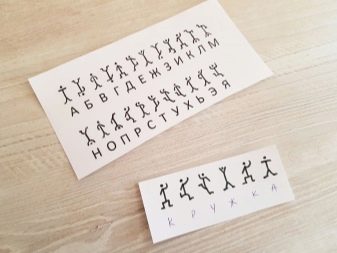
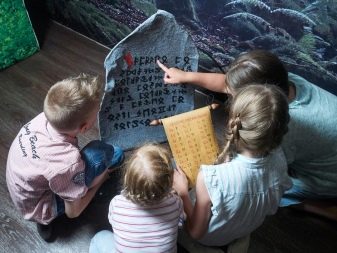
- Blitz. These are questions that need to be answered very quickly. Most likely, each team member in turn should answer. Questions should be related to the quest.
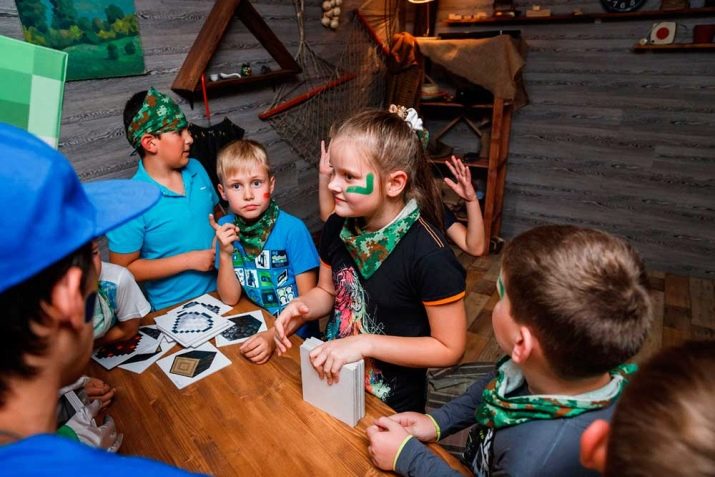
- Synthesis and analysis. This is a series of tasks, which consists in bringing the given elements to the general whole, or, conversely, to divide one element into its components. For example, making up many small words from one word is an analytical task. But to think about what unites 10 different pictures is a synthesis (for example, they are all written by the impressionists).
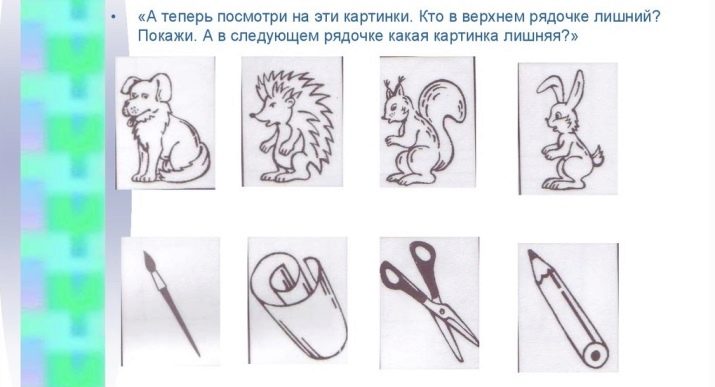
- Mnemonic. These are tasks, the purpose of which is to test the memory of the participants. For example, the team is given a minute for which they must see all the red objects in the room, and then list them, in writing or orally. You can also make sketches from memory, add the constructor, try to reproduce the seen "sculpture of living people", etc.

- For erudition. Basically, such tasks are used in intellectual tests, they will suit fans of the game “What? Where? When?" and similar shows. Answers can be given temporarily, written down in the search task card, or answers to a series of questions provide a clue that takes the whole team to the next stage. For example, a whole proverb is formed from the answers to questions (this is always one specific word). She is the code for passing to the next stage.
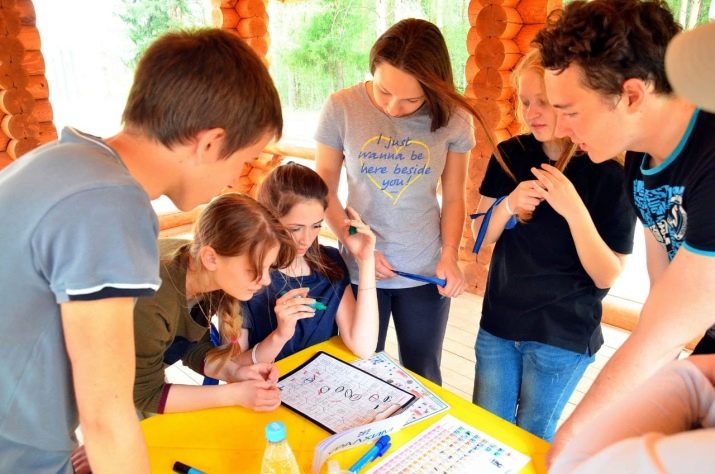
- Computing. All tasks, one way or another related to mathematics, are sent to this type. You can fit many geometric shapes into one large square, and the participants should see everything. Or, for example, ask a problem, the answer to which is not at all obvious. There is an option to remember the school oral account and spend it for a while - it will be reckless.
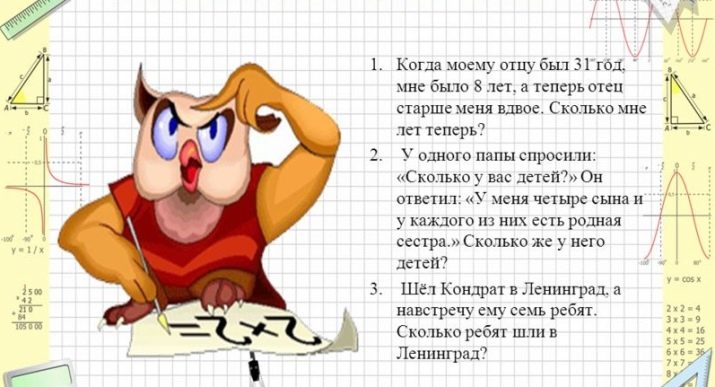
- Linguistic. For example, the participants will have to divide words by origin: words with a Greek root will go into one pile, and words with a Latin root in the other. Or try to compose a text in which each word begins with one letter. Tasks where the participants are looking for Russian counterparts to foreign proverbs always work well. Foreign ones are written immediately with translation, but you still need to guess what is in Russian culture, consonant with a specific proverb.
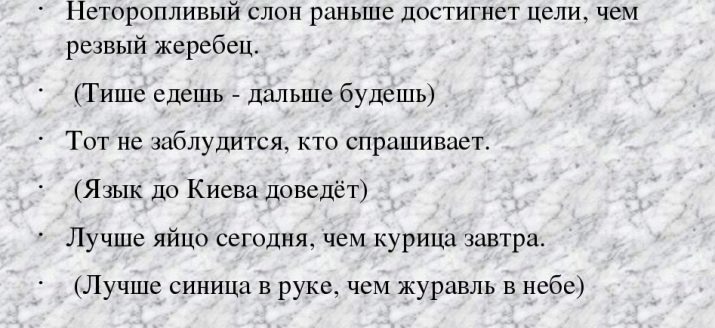
- Digital, computer, etc. These are tasks that are related to the ability to work on a computer, to understand applications and programs. And for children, such tasks can also be made. For example, children will have to send a message to the presenter's number using only one smartphone at all, in which there will be a certain number of characters, the topic is sustained, and it should be written without errors.

Obviously, it is impossible to fit all types of tasks into this list, because there are so many original ideas and developments.
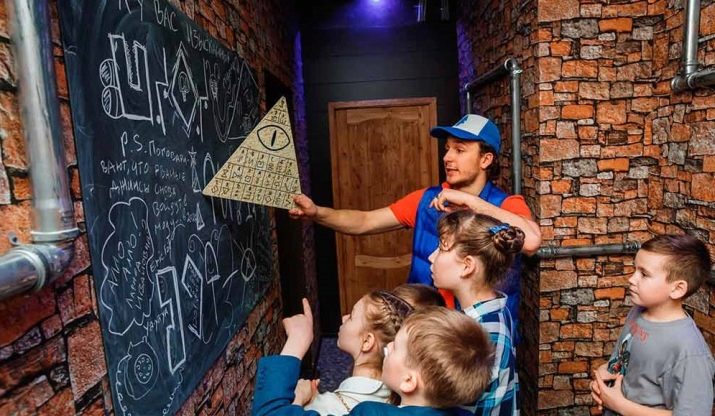
How to organize it correctly?
If not everyone, then many are capable of making a quest with their own hands.
Organizing an event is always more difficult than holding it, as it requires a lot of effort and time.
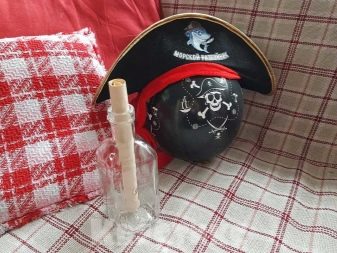
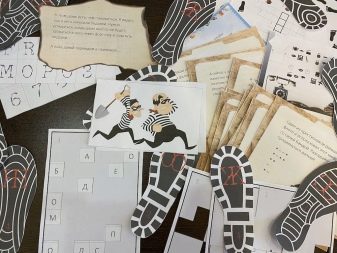
In room
Initially, you must assume that the script is limited to the location. And the number of participants will also be limited. It is immediately determined whether the whole apartment or just one room can be used as a playing field.
If this is a children's quest (and these are more often held in the apartment), it is very important that the birthday child does not accidentally declassify a single moment of the quest. This is perhaps the hardest part.
If it seems that there are few opportunities in the room, you need to break this stereotype yourself. Envelopes with new tasks can be hidden everywhere: behind curtains, in a bread bin, inside a hat in a hallway, behind a painting, in a candy bowl, etc. Children are the most grateful players, they will not find fault, and will even rejoice at banal ideas - you just need to remember that everything is new to them.


The main prize, to which the team goes throughout the entire quest, must be hidden so that it cannot be found in any way during other tests. Many organizing parents take it away to neighbors, and at some point return it. There are also such cunning ones that towards the end of the quest they order pizza delivery, and then they ask the courier to play along, and together with the pizza he brings the main prize. Everyone is delighted!

Outside
If the quest is on the street, the participants will move a lot.
It is necessary to immediately determine which territory is given for the game, and where it is pointless to go.
What to consider when conducting a quest on the street:
- all tasks must be safe;
- there can be no discrepancies in the success / failure of the assignment;
- tasks should be carried out in conditions of maximum possible hygiene (you should not force smart guests to dig in the ground, or you will have to provide them with protective "overalls");
- if it is a children's birthday, it is convenient to organize a picnic right there in nature after the quest - after all, the appetite after the game will be excellent, and such a feast looks more interesting than usual;
- the quest is organized in a place where it will not disturb the public;
- if it is decided to arrange a game in the courtyard of a high-rise building (that is, a common playground), you need to take into account that other guys may be a spectator of the quest - you should play along with the situation and ask the children to become fans;
- if the game is organized in the Rest House, at the tourist center, it can be extended over several game days and the finale can be timed either to the day of departure or to the evening before.
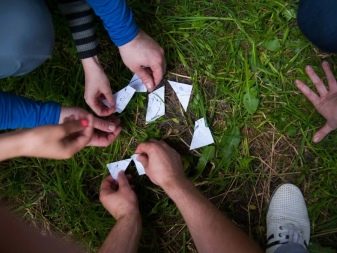
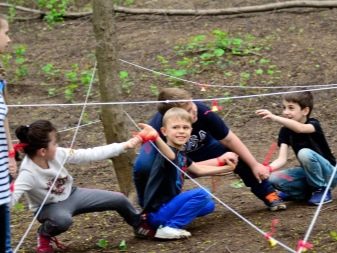
By the way, organizing search games on the street does not mean at all that they can be held only in the warm season. And in winter, running around the snow-covered park in search of clues is a great idea. You just need to adapt to the existing conditions.
The quest outdoors in winter has the following highlights:
- do not make the quest very long, so that people do not freeze;
- do not allow such a form of tasks so that the cards with them, hidden under the bush, could get wet, deformed, etc.;
- provide participants with hot drinks and sandwiches (preferably);
- build the script so that the team moves more;
- use sports equipment (skis, skates, ice skates, tubing), if this does not contradict the scenario, and organize the safety of this stage of the competition.
Winter quests are perfect as New Year's school, yard, corporate events. They can be timed to coincide with the Defender of the Fatherland Day, and Valentine's Day, etc.
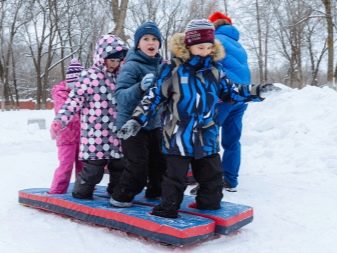
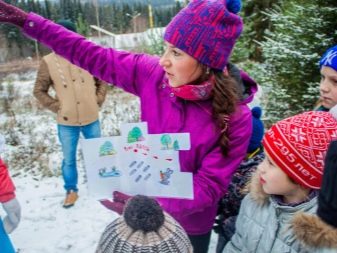
Interesting ideas
Quest topics are very often timed to coincide with calendar holidays. It is logical to offer several ideas related to such programs.
- Valentine's Day. On February 14, you can give tasks related not only to knowledge of the history of the holiday, but also to famous couples from world history and culture, to make collective collages in the shape of a heart, and even the whole team (or just with my husband) to cook “hearty” pizza.
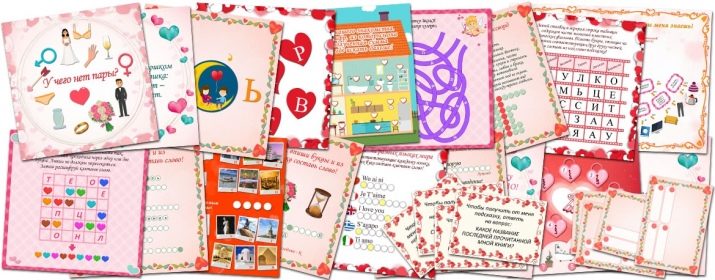
- New Year in the office. If the quest is organized in the office (a fairly typical situation), you can arrange a thematic game related both to the results of the year and to professional characteristics. For example, you need to write a report using the suggested words (to make it humorous). Or draw up an agreement in which to oblige all team members to smile at each other every morning and to hug a colleague at least once a day.

- Family New Year at home. For your beloved household members, you can also organize a cool home quest. From role-playing tasks, for example, using simple props, disguise yourself as a character and read out congratulations on his behalf for everyone. Prepare the text in advance and provide. For home and small in number, in terms of the number of participants in quests, unifying creative tasks are very important. For example, the whole family (and guests) make a chain garland while listening to New Year's songs. The task at the end of the competition is to sing songs, remember a certain fragment of the composition.

- March 8. Only men can participate in the quest, and women will be on the jury or spectators. The main point of this search game is to offer men to solve those problems that women regularly face. You can come up with and implement similar tests: put in one container those products (from the proposed ones) that are used to make borscht. Sew on a button, compare the cosmetic product and its name (men have little idea how ink differs from eyeliner), compose a lullaby and sing it, etc. These simple tasks can be dressed up in tasks and built into a logical chain of stages. Well, in the finale of the game, the men get to the "Treasure Island", where gifts for the ladies are hidden.
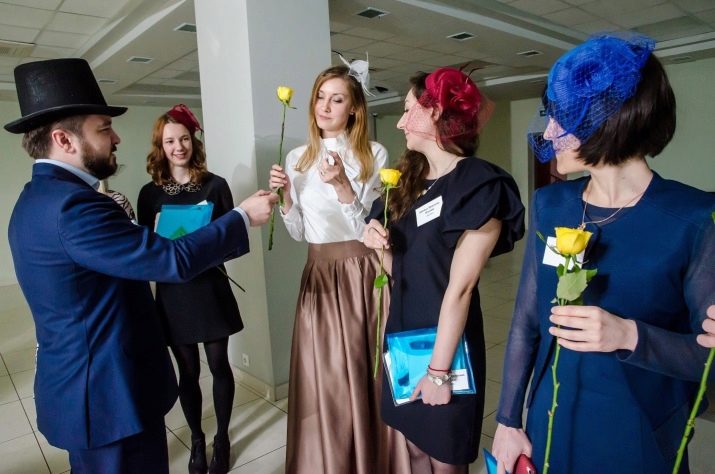
But quests are not necessarily timed to coincide with the holidays, sometimes they even have a free theme, they are not clearly limited by the specifics of tasks. If you still want to stylistically designate the scenario and the idea, then the following options will help "disperse" the fantasy.
- Wild West. Or else it can be called a Cowboy Party. One of the tasks may be as follows: a shadow screen is used, behind which only the silhouette of a person is visible to the participants. Someone from the opposing team goes behind the screen, and as soon as the authentic music turns on, he begins to depict a cowboy dance. And by the shadow of the dancer, the rivals need to determine who is behind the screen. Naturally, this is only suitable for a game where the teams are familiar with each other.
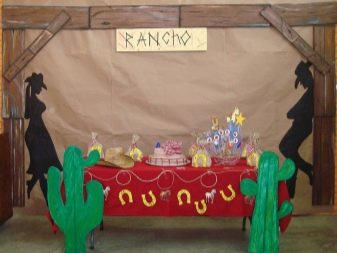

- Detective. The detective quest uses well-known techniques of various spy / military stories, films and cartoons. For example, participants receive a letter in a bottle, some of the words from which are blurred with water. They need to compose a complete text from the remaining fragment. For young people, children, it will be especially interesting to get in touch with objects of bygone eras: a typewriter, a magnifying glass, etc.
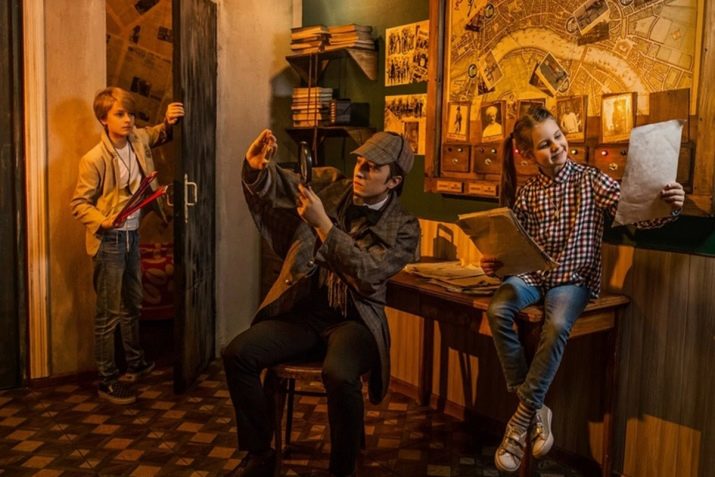
- Historical. A certain historical era is taken as a basis. For example, the beginning of the 20th century. And all tasks will be somehow connected with this time. For example, the participants will have to take a piece of paper and write all the important events that happened in certain years.
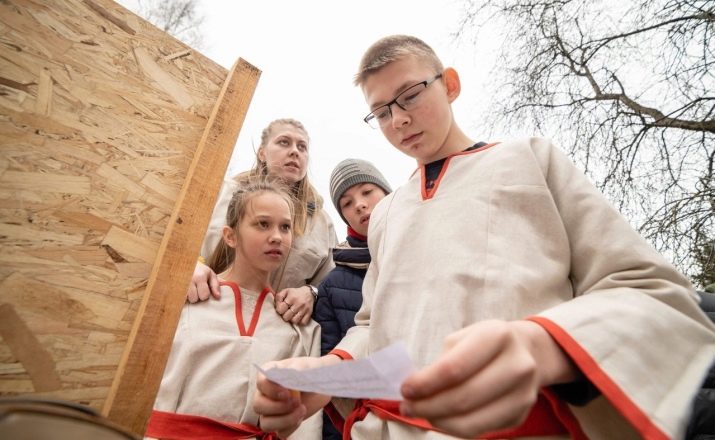
- Pirate. Both children and adults love this topic. This is almost a win-win option for a child's birthday, which brought together the whole family, family friends, etc. Among the tasks may be this: in front of the team there is a board with fixed magnets-cards with words, letters in them are rearranged. You need to mentally put the letters in the right order and leave on the board only those words that are related to the marine and pirate themes.
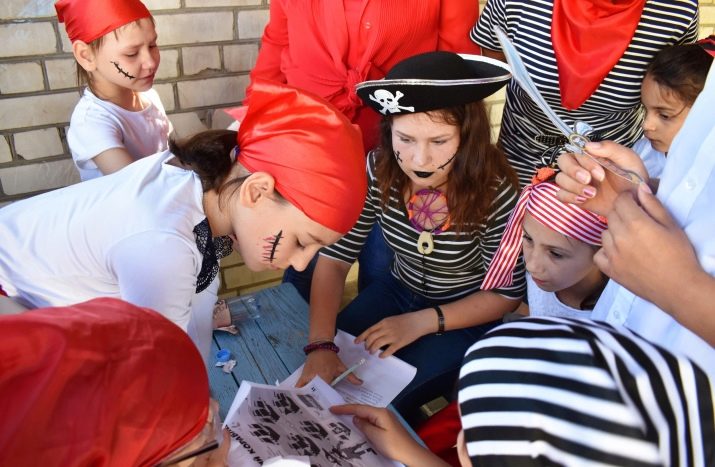
Suppose the team receives a key for each stage. At the end of the game, they have a whole bunch of keys, but only one will open the chest (locker, drawer) with prizes.The keys are given, for example, 7, and attempts 3. Of course, the team cannot lose, therefore after three unsuccessful attempts it gets the right to "all or nothing." And it consists in completing a creative task. Sing, dance - one step away from the prize, the participants will be ready for anything. And laughter and fun at the end of the game at a special price.
Interesting quests!
